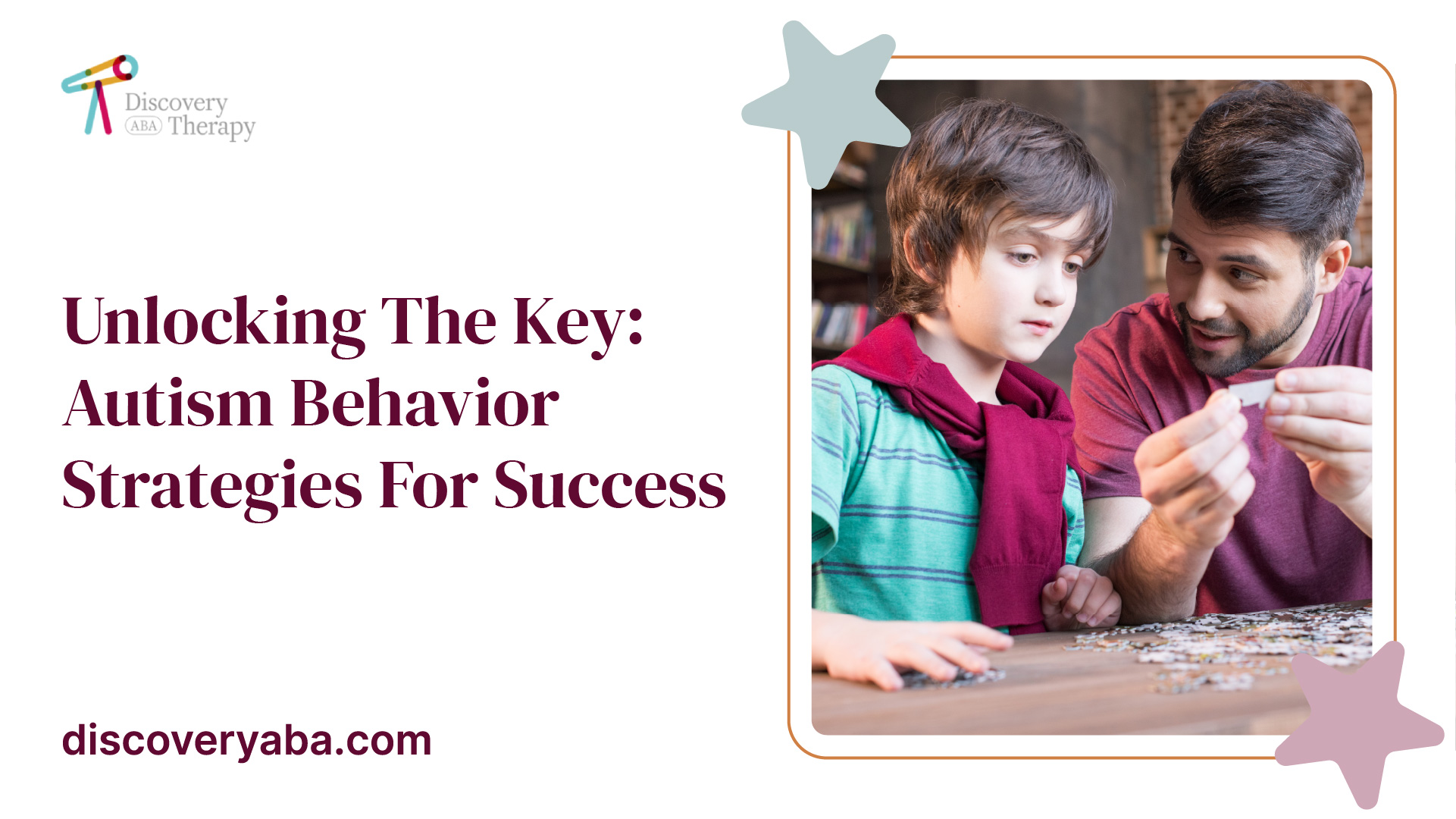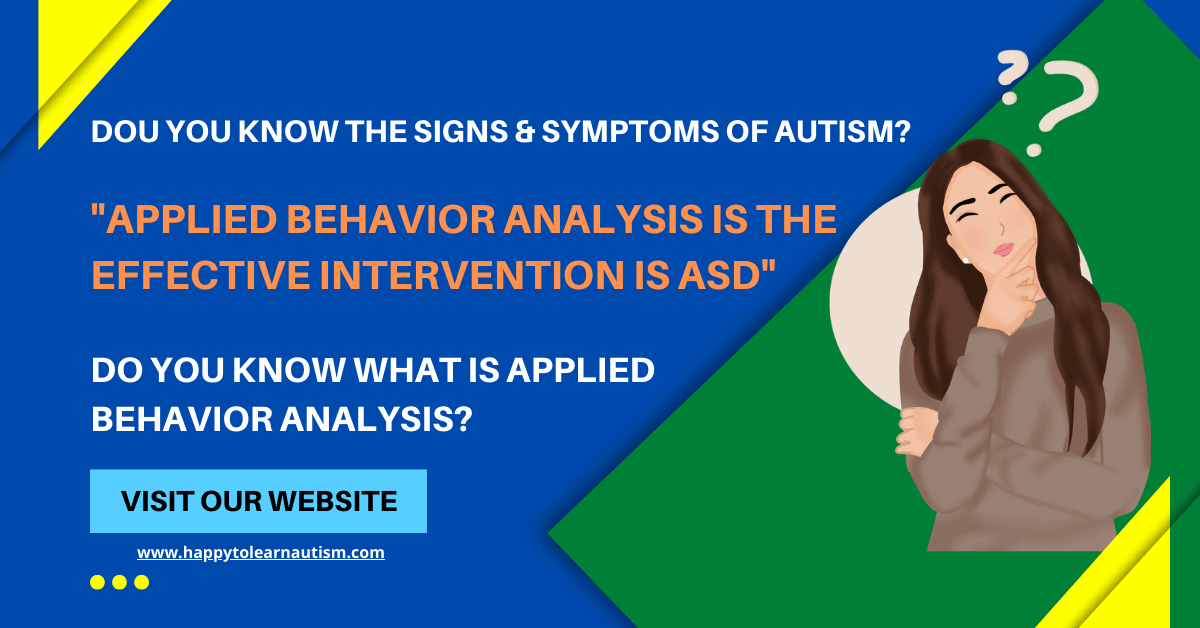Everyday routines an Aba Therapist may use to build trust
Wiki Article
Comprehending the Effect of Behavioral Autism on Daily Life and Social Interactions
You may not realize just how deeply behavior autism affects daily life and social interactions. People on the spectrum typically navigate a globe filled with interaction obstacles and sensory overload. These difficulties can lead to frustration and isolation, impacting their connections and overall wellness.Defining Behavior Autism and Its Attributes
Behavioral autism, typically described as autism spectrum disorder (ASD), includes a series of problems defined by obstacles in social communication, interaction, and repetitive actions. You could discover that people with ASD often struggle to translate social signs, which can result in misunderstandings in conversations. They might find it difficult to develop eye contact or engage in tiny talk, making social circumstances feel frustrating.Communication problems can show up in numerous methods, from postponed speech growth to a preference for utilizing less words. Recurring habits, such as hand-flapping or shaking, can work as coping mechanisms to manage stress or sensory overload. These attributes can profoundly affect everyday life, making it necessary for you to recognize and support those with ASD. By recognizing these qualities, you can foster an atmosphere that promotes approval and motivates efficient interaction, aiding people with autism grow in their daily interactions.
The Range of Autism: Comprehending Irregularity in Habits
Autism spectrum condition (ASD) isn't a one-size-fits-all medical diagnosis; it varies commonly among individuals. You might see that some people with ASD exhibit light symptoms, while others might encounter more substantial difficulties. This irregularity can manifest in actions, passions, and sensory sensitivities. You may run into individuals who are highly verbal and engage conveniently in discussions, while others may like singular tasks or interact non-verbally.In addition, the method people with ASD reply to sensory input can differ considerably; some could be overwhelmed by loud noises or intense lights, whereas others prosper in stimulating settings. The range also includes differences in social communications; some individuals might battle to translate social signs, while others navigate social setups with relative simplicity. Understanding this irregularity is necessary, as it helps you appreciate each person's distinct experience and dressmaker support to their details requirements, cultivating an extra inclusive environment for everybody.
Interaction Challenges Encountered by Individuals With Autism
When you engage with individuals on the autism range, you might observe their special interaction challenges. They frequently face troubles with both nonverbal and verbal hints, which can affect their social communications. Recognizing these obstacles is essential for promoting far better connections and support.
Verbal Interaction Difficulties
Numerous people on the autism range experience spoken communication problems that can considerably influence their daily interactions. You might discover it testing to share your thoughts, feelings, or needs clearly. This can result in aggravation for both you and those around you, as misunderstandings take place. You may have problem with starting conversations, maintaining a topic, or comprehending subtleties in speech. Frequently, you may favor utilizing basic language or repetitive phrases, which can limit your capacity to take part in much deeper conversations. Your rate, quantity, or tone could not straighten with social expectations, causing others to misunderstand your intentions. Identifying these obstacles can aid you and your assistance network establish strategies to boost interaction and foster better links with others in your everyday life.Nonverbal Interaction Obstacles
Verbal communication isn't the only challenge people on the autism spectrum face; nonverbal interaction barriers can be equally as considerable. You could discover it difficult to analyze body language, faces, and eye call, which are vital for effective interaction. These difficulties can bring about misconceptions or false impressions of social cues, making communications feel complex or overwhelming. You might struggle to reveal your own emotions through nonverbal means, leaving others not sure of your purposes or feelings. This disconnect can produce feelings of seclusion and frustration. Acknowledging these obstacles is crucial for fostering understanding and compassion in your interactions. By attending to nonverbal interaction, you can find methods to boost your social experiences and boost your overall quality of life.Social Interaction Impacts
Social interactions can often feel overwhelming as a result of the distinct communication obstacles dealt with by individuals with autism. You may have problem with translating social cues, making it difficult to comprehend mockery or body movement. This can result in misunderstandings or unpleasant minutes in conversations. Furthermore, initiating and maintaining discussions might really feel tough, triggering stress and anxiety in social circumstances. You may favor organized environments, making spontaneous interactions unpleasant. It's additionally common to experience trouble in participating in little talk, which can prevent developing brand-new relationships. Acknowledging these challenges can help you locate methods to boost communication, such as practicing social skills in secure setups or making use of aesthetic help - Autism Spectrum Therapies. Comprehending your demands permits you to browse social communications with higher confidence and convenience.Social Communication and Connection Structure in Autism
While building relationships can be testing for people with autism, recognizing their one-of-a-kind viewpoints and interaction designs can cultivate significant connections. You could discover that numerous individuals on the spectrum like direct interaction and may deal with social signs or tiny talk. By being simple in your communications, you can help produce an environment where they really feel comfortable.Involving in shared passions can also offer as a bridge to much deeper connections. Whether it's a hobby, a favorite program, or a common enthusiasm, these usual threads can open up doors to friendship.
Every Day Life Routine: Browsing Difficulties and Methods
Steering everyday life routines can be especially testing for individuals with autism, specifically when unanticipated adjustments happen. To navigate these obstacles, think go to these guys about executing aesthetic timetables or lists.Developing a regimen that consists of sensory breaks can additionally be helpful. You can intend time-outs throughout your day to reenergize. It's vital to communicate with those around you, allowing them know your demands and choices. This assists create an understanding atmosphere.
Lastly, technique mindfulness methods to handle tension and stress and anxiety. Straightforward breathing workouts or basing strategies can make a substantial distinction. By integrating these approaches, you can improve your day-to-day routine and decrease interruptions, making life feel a lot more manageable.
Staminas and Capabilities of Individuals on the Autism Spectrum
Understanding day-to-day live routines is just one element of the autism experience. Several people on the autism range possess exceptional strengths and capabilities that set them apart. You could locate that your attention to detail is exceptional, allowing you to master jobs that require precision and emphasis. Your ability to assume outside the box can cause ingenious solutions in numerous situations.In addition, your memory skills frequently radiate, specifically in areas of passion. Autism Behavioral Therapy. This flair for preserving details can make you a valuable resource in fields like art, innovation, or science. You may additionally display strong aesthetic reasoning, enabling you to imagine complicated ideas and address problems artistically
Furthermore, your distinct viewpoint on the world can foster empathy and understanding in others, enhancing social interactions. Embracing these toughness not just enhances your self-confidence yet likewise assists others value the varied abilities you bring to the table.
Creating Inclusive Environments for Individuals With Autism
Developing comprehensive environments for individuals with autism starts with designing sensory-friendly rooms that accommodate their special needs. You can likewise cultivate chances for social interaction, assisting to build friendships and connections. By making these modifications, you'll contribute to a more inviting atmosphere for everybody.Creating Sensory-Friendly Spaces
While developing sensory-friendly spaces, it's essential to review the distinct needs of individuals with autism. Beginning by selecting soothing shades and soft illumination to develop a comforting environment. Integrate silent zones where people can pull away and charge when bewildered. You'll wish to lessen loud sounds and interruptions, utilizing soundproof products or white sound makers to aid preserve harmony. Consider tactile elements like soft fabrics or fidget-friendly items that can give comfort. Identify that spaces are flexible, enabling for very easy reformation to suit different activities. Finally, include aesthetic routines or clear signs to assist people browse the space with confidence. By attentively incorporating these elements, you can create a welcoming environment that sustains sensory requirements and promotes overall health.Promoting Social Interaction Opportunities
Designing sensory-friendly spaces not only addresses specific comfort but also sets the stage for meaningful social communications amongst individuals with autism. Encourage peer mentoring, coupling individuals with autism with encouraging peers that can lead them through social scenarios. By executing these approaches, you can improve social chances, helping people with read the full info here autism build relationships and enhance their social abilities in a secure, welcoming setting.
Often Asked Concerns
How Can Buddies Assistance Somebody With Behavioral Autism?
You can sustain a buddy with behavioral autism by holding your horses, paying attention proactively, and appreciating their boundaries. Engage in activities they appreciate, interact openly, and develop a comfy setting where they really feel valued and understood.What Resources Are Available for Parents of Kid With Autism?
You can check out numerous sources for moms and dads of children with autism, including assistance groups, instructional internet sites, and local social work. Getting in touch with other parents can also offer beneficial insights and shared experiences to help browse difficulties.
Can Behavioral Autism Adjustment Over Time?

Yes, behavior autism can change gradually. You may observe shifts in communication, social skills, and behavior as your child grows. Early intervention and support commonly play crucial duties in these their website developing adjustments.
How Do Sensory Level Of Sensitivities Affect Life?
Sensory level of sensitivities can make daily experiences frustrating. You may battle with loud noises or bright lights, leading to stress and anxiety or evasion. Locating environments that suit your needs can significantly improve your convenience and total day-to-day live.What Prevail Misconceptions Concerning Behavioral Autism?
You could assume behavioral autism only influences communication abilities, but it's even more complex. Several presume individuals lack compassion or intelligence, which isn't true. Understanding these mistaken beliefs aids foster approval and assistance for those on the range.Behavior autism, typically referred to as autism range problem (ASD), incorporates an array of problems defined by obstacles in social communication, interaction, and repetitive habits.Social communications can frequently feel overwhelming due to the special interaction difficulties faced by individuals with autism.Designing sensory-friendly rooms not only addresses private comfort but likewise sets the stage for significant social communications amongst people with autism. Encourage peer mentoring, matching individuals with autism with helpful peers that can assist them via social scenarios. By implementing these approaches, you can boost social possibilities, assisting individuals with autism build relationships and strengthen their social skills in a risk-free, inviting atmosphere.
Report this wiki page